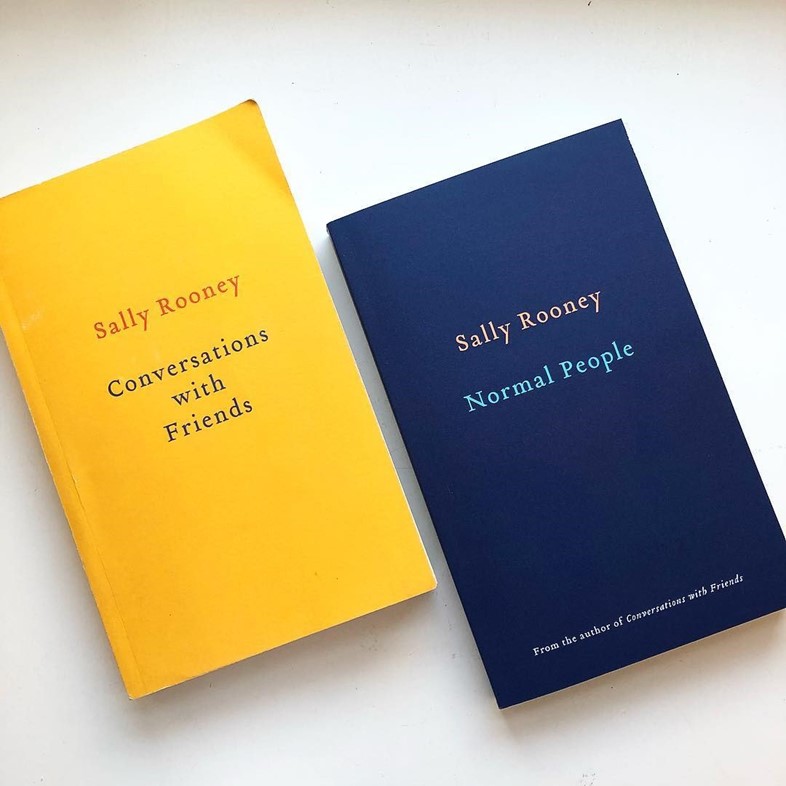“I trust the women I follow on Instagram on spaghetti recipes, organic deodorants and natural wines. Why wouldn’t I trust their opinion on fiction, too?” writes Ana Kinsella
Recently I went on holiday, taking a budget flight south in search of a dose of winter sun and mindless relaxation. Before I left I went to Skoob Books in Bloomsbury, armed with a tenner and in need of some reliably engrossing beach reads to keep me going. I had plumbed the depths of New Fiction and had exhausted both Biography and Bestsellers. I was out of ideas on what to read next. And so I opened Instagram, to see what the women I follow were reading.
On any given week, half my timeline seem to be reading the same book. Often the book in question is easy to spot on the grid: it’s got a bold, punchy cover and a title that shouts from your screen in lurid colours. Over and over I watch a book start to crop up on Instagram and before long I find myself in Waterstones, handing over my debit card in a fugue state.
There is a certain kind of reader who will sneer at me for this. He probably thinks (I’m sure he’s a he) that I should be able to make my decisions on what to read without resorting to a glossy visual medium that runs on envy and influencer marketing. But the way we consume basically everything has changed – why wouldn’t books be the very same? Any time we use the internet, particularly when we want to buy something, we’re targeted with vast numbers of algorithms telling us what we like. Most of them are achingly blunt instruments. You watched Black Mirror, the algorithm says. Here’s seven more zany British comedies you might like.
Who really feels seen by an algorithm? The women who get me and get my taste are the women I follow on Instagram. I trust their opinion on spaghetti recipes, in white Levi’s, in spring blossoms and Korean restaurants and organic deodorants and natural wines. Why wouldn’t I trust their opinion on fiction, too?
Lucky for me, they’re posting what they’re reading. Here’s Sally Rooney’s Normal People beside coffee in a cup made at Penny’s ceramics class, and there’s Ariel Levy’s The Rules Do Not Apply lying casually on Nat’s berber rug. I screengrab and take notes, and try not to Instagram too gormlessly once I get my own hands on the book in question.
The curiously toothless Twitter parody account Bougie London Literary Woman, which went inexplicably viral late last year, was correct on one point: women my age do use social media to signal various aspects of taste and appetite and class. The objects and experiences we reference on our timelines are often there to represent facets of our constructed personalities, facets of ourselves that we think are interesting and important. But for me, Book Instagram has given me a sense of fellowship that I never found while studying English Literature, and that I’ve never truly found elsewhere since then, either. (Though please, do invite me to your book club.) Finding a community of like-minded readers means never feeling embarrassed for not being better-read. Online, the common currency is the humble recommendation, often expressed without even a caption, and once you find what it is you like, your to-read pile can feel gloriously endless.
That doesn’t mean my taste in books has been sealed off by use of social media. I’ve struggled through some books beloved by my internet sisters. Last summer there was one novel in particular with a cover so Instagrammable that it hurt. I read it in a day, and loathed it so much that I started to doubt the judgment of those who had posted about it in the first place. Reading is always going to be a process of trial and error, but at the very least, Instagram is a safe space to work out what it is that you really like.
Plus, Instagram’s hype machine has brought me to some interesting places; books like Lisa Halliday’s Asymmetry or Jenny Offill’s Dept of Speculation that are formally inventive or narratively surprising. Recently it has encouraged me to pick up Elizabeth Jane Howard’s Cazalet Chronicles, the strangely addictive four-volume family drama. This summer I’m looking forward to seeing Jessica Andrews’s debut novel Saltwater beguile and fascinate the readers who pick it up after seeing its seductive cover on the grid.
There’s such joy to be found in communal reading. At 15 my mum gave me her worn copy of Donna Tartt’s The Secret History, a book that swept like wildfire through my group of schoolfriends. She explained that she had witnessed the same in real-time when it was published in 1992: whole tube carriages absorbed in one book, pages turning almost in tandem. I’ve found that again now: it just exists primarily on my phone’s screen. And it’s down to the good recommendations of women whose taste I trust.
When looking for the people you can trust, be wary of anyone who considers themselves an authority. Who takes themselves too seriously. Anyone who’s typing “Am I the only one who just didn’t get the Sally Rooney praise?” under their latest beach-related photo, complete with chin-scratch emoji. They probably think being opinionated is going to make them look clever, and they’re definitely just trolling for engagement. They need you more than you need them. Avoid anyone who’s angling for a review slot in a broadsheet’s Sunday supplement magazine. Remember, in particular, that the British media effectively holds seats for posh, pretty, photogenic woman with opinions, and just because they’ve got media exposure doesn’t mean you have to like, or even acknowledge, their opinions. Look instead for women who wear their smarts lightly. Voracious readers who value well-written, novel-ly novels over industry opinion. Women, of course, with brilliant taste, in everything from peonies to page-turners.
